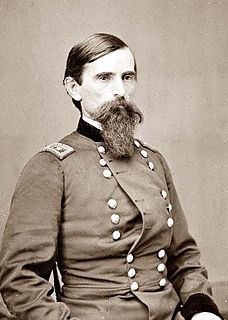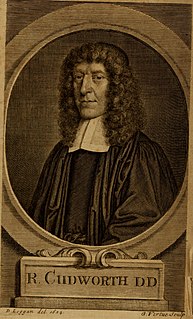A Quote by Lew Wallace
Pure wisdom always directs itself towards God; the purest wisdom is knowledge of God.
Related Quotes
WISDOM IS dependent upon knowledge. Where there is complete ignorance there can be no wisdom, no knowledge of the right thing to do. Man’s knowledge is comparatively limited and so his wisdom must be small, unless he can connect his mind with a knowledge greater than his own and draw from it, by inspiration, the wisdom that his own limitations deny him. Only God knows all truth; therefore only God can have Real wisdom or know the right thing to do at all times, and man can receive wisdom from God. Wisdom is obtained by reading the mind of God.
Without knowledge of self there is no knowledge of God Our wisdom, in so far as it ought to be deemed true and solid Wisdom, consists almost entirely of two parts: the knowledge of God and of ourselves. But as these are connected together by many ties, it is not easy to determine which of the two precedes and gives birth to the other.
The ultimate difference between God's wisdom and man's wisdom is how they relate to the glory of God's grace in Christ crucified. God's wisdom makes the glory of God's grace our supreme treasure. But man's wisdom delights in seeing himself as resourceful, self-sufficient, self determining, and not utterly dependent on God's free grace.
Knowledge itself is a neutral tool that can be used for good or evil. Wisdom, in contrast, always directs us toward happiness. The task of education must be to stimulate and unleash the wisdom that lies dormant in the lives of all young people. This is not a forced process, like pressing something into a preformed mold, but rather drawing out the potential which exists within.
Wisdom and knowledge can best be understood together. Knowledge is learning, the power of the mind to understand and describe the universe. Wisdom is knowing how to apply knowledge and how not to apply it. Knowledge is knowing what to say; wisdom is knowing whether or not to say it. Knowledge gives answers; wisdom asks questions. Knowledge can be taught, wisdom grows from experience.
When we look at the cross we see the justice, love, wisdom and power of God. It is not easy to decide which is the most luminously revealed, whether the justice of God in judging sin, or the love of God in bearing the judgment in our place, or the wisdom of God in perfectly combining the two, or the power of God in saving those who believe. For the cross is equally an act, and therefore a demonstration, of God’s justice, love, wisdom and power. The cross assures us that this God is the reality within, behind and beyond the universe.
He who devoutly strives to attain wisdom and is on his guard against the invisible powers, should pray that both natural discrimination - whose light is but limited - and the illuminating grace of the Spirit abide in him. The first by means of practice trains the flesh in virtue, the second illuminates the intellect so that it chooses above all else companionship with wisdom; and through wisdom it destroys the strongholds of evil and pulls down 'all the self-esteem that exalts itself against the knowledge of God' (II Cor. 10:5).
For the wisdom of the flesh brings death, but that of the spirit brings life and peace, since the wisdom of the flesh is the enemy of God; it is not subject to God's law, nor can it be. And since the wisdom of the flesh is unable to bear the yoke of God's law, it cannot look upon it either, for its eyes are clouded with the smoke of pride.
What is sin? It is the glory of God not honored. The holiness of God not reverenced. The greatness of God not admired. The power of God not praised. The truth of God not sought. The wisdom of God not esteemed. The beauty of God not treasured. The goodness of God not savored. The faithfulness of God not trusted. The commandments of God not obeyed. The justice of God not respected. The wrath of God not feared. The grace of God not cherished. The presence of God not prized. The person of God not loved. That is sin.
Indeed all the saints are taught the same lesson - to renounce their own strength, and rely on the power of God; their own policy, and cast themselves on the wisdom of God; their own righteousness, and expect all from the pure mercy of God in Christ, which act of faith is so pleasing to God, that such a soul shall never be ashamed.



































